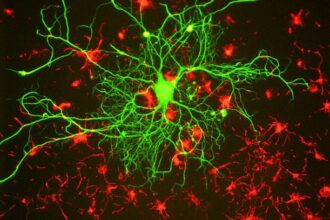The last decade has witnessed advancement in technology hence making life much more comfortable in every possible way. New applications are being harnessed and implemented every day to cater to different human needs. Researchers and doctors are using technology to prevent and treat health conditions, and recovery has not been left behind. This article will help you learn how technology helps in drug recovery. 1.Increased accessibility to treatment services Most drug users sink deeper or relapse due to stigma associated with rehab. The use of mobile phones, computers and other gadgets are encouraging young people to go through recovery programs has eased the stigma. Rehabs are using smartphone-based programs to ensure patients stick to the journey of drug recovery. Whether it’s by making it easy to access information about sobriety or communicating with a physician during a tough time, these options close the gap between you and people who can offer help. These apps also have online support groups that bring you together with people with similar drug problems, hence creating anonymity in a supportive community. 2.Use of virtual reality A lot of research in virtual reality and drug addiction is being carried out. Virtual reality computer program aids in capturing your reaction using headsets. The therapist requires you to put on VR headset before putting you in situations that might trigger you to crave drugs. Your response to visual stimuli shows your drug dependency stage. For instance, if you have been using opioid drugs such as heroin and had an overdose, virtual reality can be of great help. And in case of a lawsuit, opioid attorneys can help you win against pharmaceutical companies liable for your misfortunes. 3.Neurofeedback Technology There are treatment facilities that have incorporated technology into innovative treatment strategies such as neurofeedback therapy. With this treatment, your brain is trained to counteract cravings for drugs using electrodes, computers and specialized software. Through reading your mind, the physician can make decisions on how to treat you. Although this treatment is not yet well developed, researchers say that it could be a very effective way to help you manage drugs addiction. 4.Use of Artificial Intelligence in Treatment Artificial intelligence (AI) is the development of computer systems that can perform tasks usually requiring human knowledge such as speech recognition visual perception, decision making, and translation. AI is used in developing medication reminders, online guidance and help keep you on track through your smartphone. With technology, drug recovery has become easy and will soon be a thing of the past, hence making you enjoy growth and improvements as you experience sobriety. Conclusion Use of technology has made it easy for you or your loved one to undertake thee drug recovery journey. It’s not easy to admit that you have a drug problem, but this article can help you seek treatment without fear of the stigma that comes with rehabs. After seeing how technology has helped in drug recovery, now you know the kind of treatment to choose. With research and advancement in technology in a few years, drug recovery will be a thing of the past.
What To Know About The Role Of Technology In Drug Recovery

John Henning is a nutritionist, freelance writer, and food blogger that provides accessible nutrition info to help people live a healthier life. His unique approach to nutrition emphasizes nutrient-dense, whole foods and healthy habits rather than restrictive diets.





